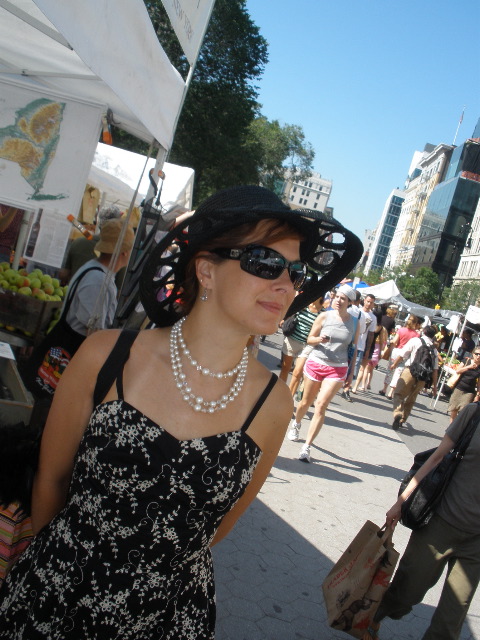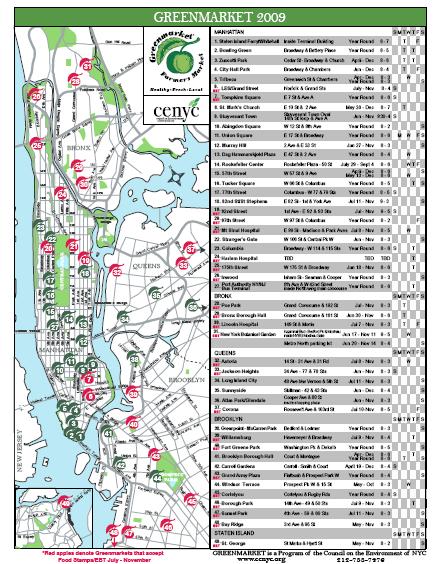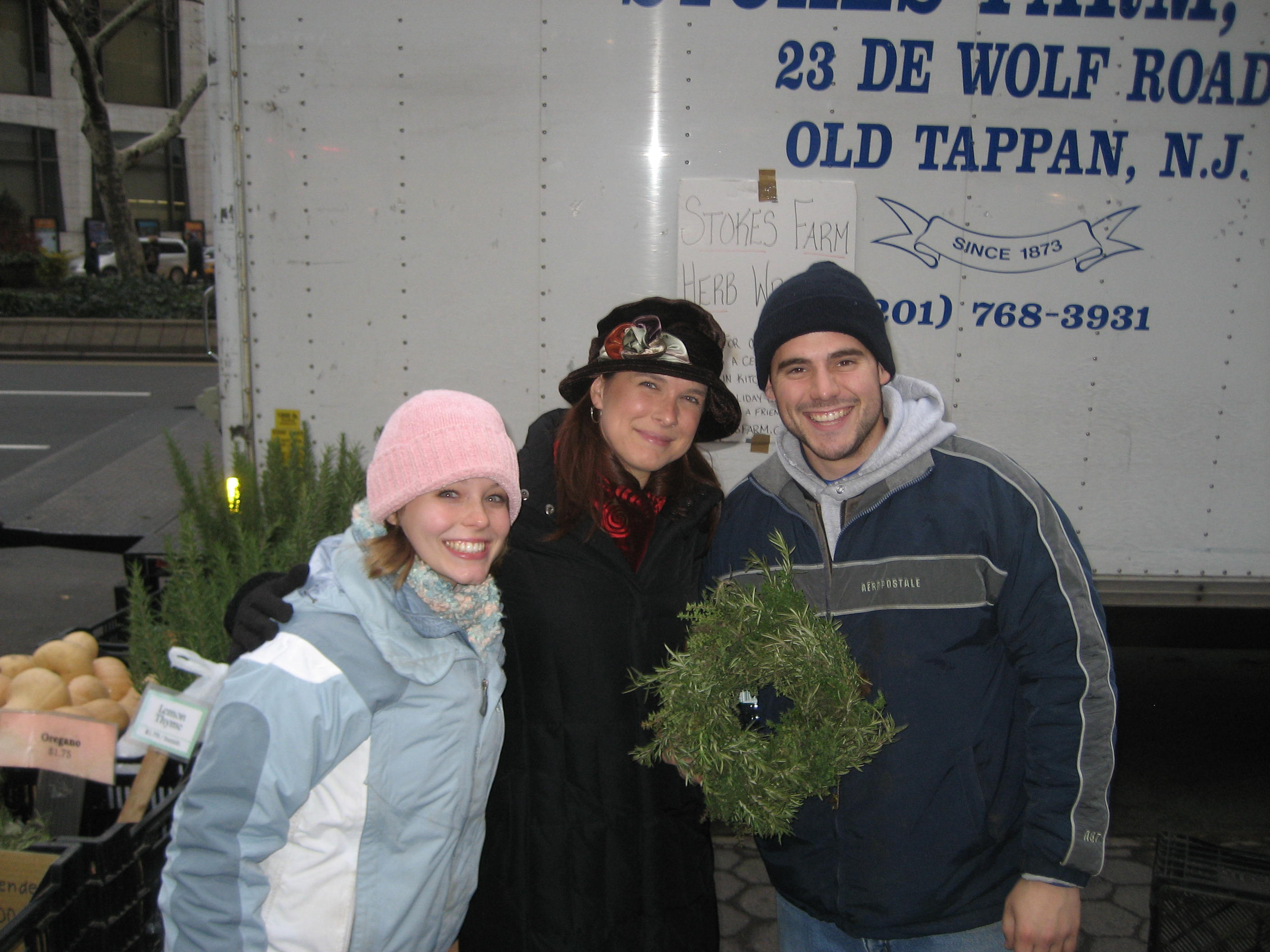
I grew up in an agricultural state. Michigan grows cherries, apples and sugar beets, among other things, and to live in Michigan is to know the mantra “knee high by the Fourth of July” is a growth measure for the huge expanses of corn fields all over the state.
But I don’t think I’d even heard the phrase “farmers’ market” until I was out of college. We sometimes bought produce from roadside farm stands — there’s a guy by my old church that sells sweet corn my aunt swears by — but those were more ad hoc, one product or one farmer at a time operations.
I grew up very much a child of the ’70s. My working mom loved convenience foods so although she tried to get a lot of vegetables into our diet, mostly they came from a can and were served swimming in butter or covered in Velvetta. I bought fresh spinach for the first time when I was about 20 and I had no idea what to do to it. I had always loved spinach but only knew it in its canned form. I laugh when I think of my bewilderment the first time I encountered a fresh head of garlic.

Ironically, it’s in super urban New York City where farmers’ markets have transformed both how we shop and how we eat, in both cases for the better.
New York’s Greenmarket program organizes nearly 50 markets around the city, many of them operating all year. The big kahuna in New York is at Union Square. Dozens of vendors sell everything from flowers and bread to local wine, beeswax candles, artisanal sauerkraut and wool made from the sheep on a farm that also makes feta.
We shopped at the Ann Arbor farmers’ market but typically bought a pretty routine selection: fresh tomatoes to supplement my own meager crop, sweet corn, berries. At Union Square, I saw so many things I’d never cooked before — some I’d never even seen — and discovered the real magic of a farmers’ market.
Farmers want you to eat what they produce. It’s how they pay the mortgage. So if you pick up a weird, bumpy looking root and ask what it is, the farmer will tell you it’s celeriac — celery root. At the booths I gravitate toward, the farmers will give you some ideas about how to cook the unfamiliar thing you’re inspecting.
I’m sure I’d seen celery root, turnips and parsnips at the grocery store before, but having a produce tour guide give me ideas of what to do with them turned me into a root fanatic. I had never cooked beets, only opened them out of jars or cans, and now John loves my roasted beets with balsamic vinegar and honey. I’ve learned to love all manner of greens — mustard, turnip and collard among them. When I buy beets, I make sure they still have the greens on them, so I can cook them, too.

We don’t always feel like traveling to Union Square, or like dealing with the crowds at the big market. At our old apartment we had a market directly across the street every Saturday, and now we have one a few blocks away on Saturdays and a different one a few blocks the other way on Sunday. The smaller markets are fun, too, because you have more of a chance to get to know the vendors, like our friends from Stokes Farm.
If you’re still shopping at a chain grocery store and haven’t made farmers’ markets part of your routine, here are a few reasons to give it a try:
- You will get more in tune with what’s in season when locally, and your mouth will thank you. Tomatoes picked a few miles away on an August day taste so much different from those you buy at Kroger in February. That can be a revelation for some.
- If you think shopping at a farmers’ market means having to spend a small fortune or finding only snooty foods your family won’t eat, chef Daniel Meyer cooks up dinner for four for $20 on Bitten and Greenmarket offers some suggestions on affordable shopping.
- If you think you don’t have time to cook, let Mark Bittman show you 101 great picnic foods that take 20 minutes or less, or 101 inspired salads that take 20 minutes or less. He will admit some might actually take a bit longer, depending on your kitchen skills, but still. They’re fast and easy for the hot days when you don’t want to be in the kitchen all night.
- You can put more money in the pockets of local farmers. The National Farmers Union says only a small fraction of American food spending goes to the farmer — most of it goes to packaging, shipping, marketing and the like. Buy local tomatoes and basil and more of that money stays closer to home.
- If you think of grocery shopping as a torturous chore to be finished as quickly as possible, your farmers’ market might change that. Rarely did we go to the Ann Arbor farmers’ market when we didn’t see at least someone we knew, and going to our New York markets is so much more fun, social and laid back than pushing a cart up and down a store aisle.
If you are already a fan of farmers’ markets, you’re not alone.
- Eating Well reports on the growth of farmers’ markets nationally and names their 10 favorites
- USA Today asks local food advocate and chef Alice Waters for her 10 favorite U.S. farmers’ markets
- American Farmland Trust recently ran a contest to vote for the best farmers’ markets in America
- Care2 and Local Harvest have a similar vote going on right now
Are you a fan of farmers’ markets? What’s your favorite farmers’ market and why?
And with that, I’m off to the market to buy some goodies for dinner tonight …

